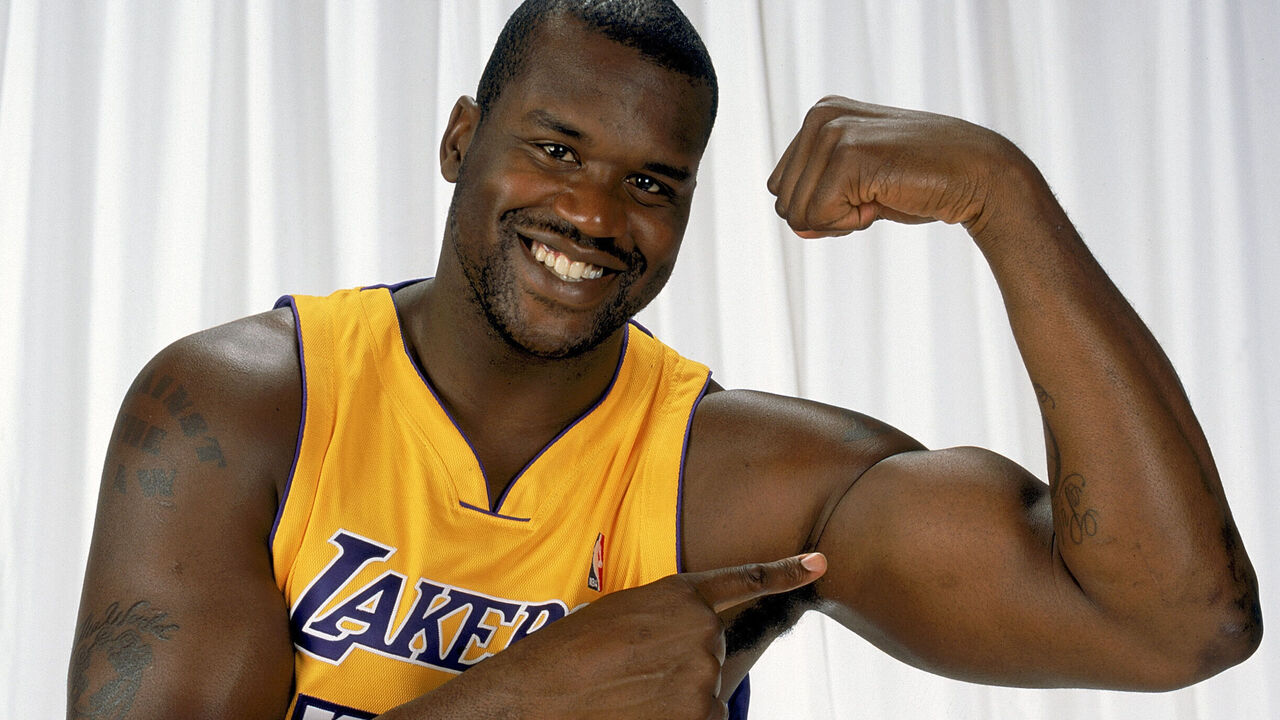Heir Jordan: Our top 5 players of the last 25 years
There have been 25 seasons since Michael Jordan retired from the Chicago Bulls after their second three-peat in the spring of 1998. theScore basketball writers Joseph Casciaro and Joe Wolfond are using that milestone to rank and discuss the top 25 players in the post-Jordan era. (Wizards-era Jordan did not make the cut.)
As a reminder, the accomplishments listed for each player only cover the 25-year period in question. For example, Shaquille O’Neal is a nine-time All-Star for the purposes of this exercise, even though he had 15 All-Star selections in his career.
Monday: Introductory essay and players 25-21
Tuesday: Players 20-16
Wednesday: Players 15-11
Thursday: Players 10-6
5. Shaquille O’Neal
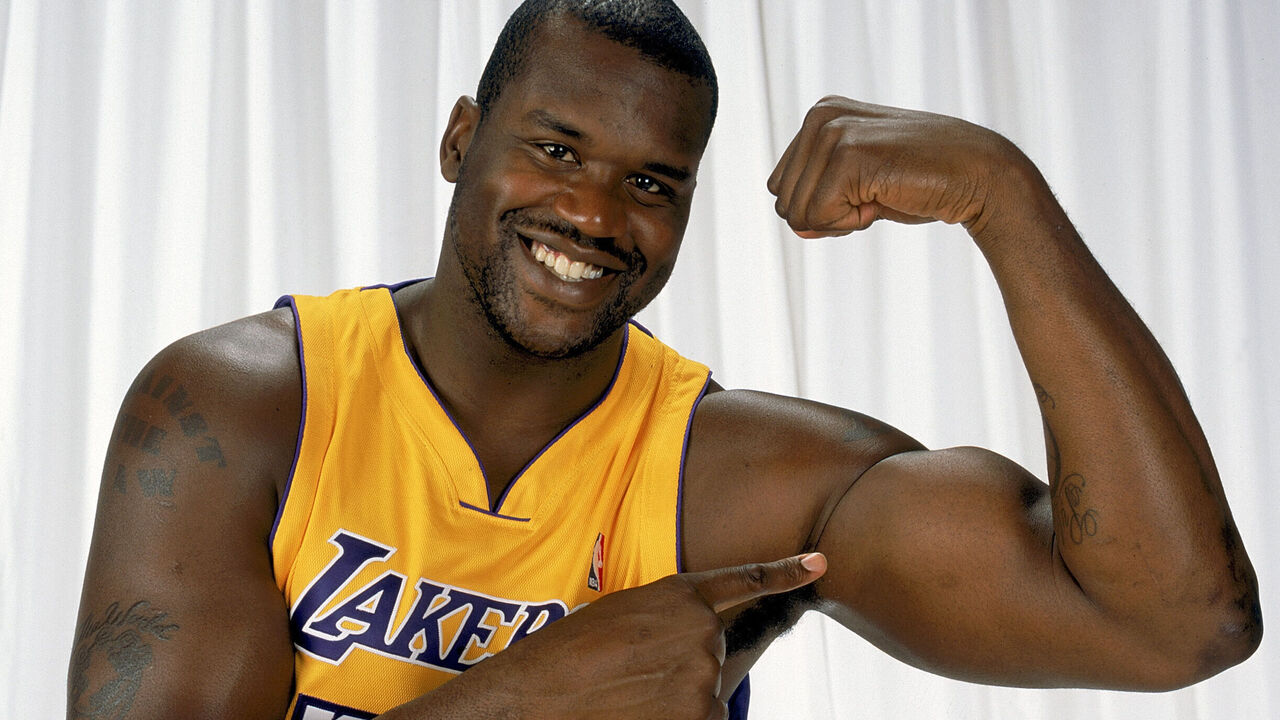
Signature performance: 2000 Finals
The 2000 NBA Finals was Shaq at the peak of his powers, on the heels of an MVP season for the 67-win Lakers. Those Lakers had narrowly survived the Trail Blazers in the West finals, roaring back from 15 down in the fourth quarter of Game 7. In the Finals, Shaq left nothing to chance. He completely laid waste to Rik Smits, Dale Davis, and the rest of the Pacers’ front line.
O’Neal went for 43 points and 19 rebounds in Game 1. In Game 2, the Pacers were so helpless to stop him that they just started hacking and bear-hugging Shaq, sending him to the free-throw line for an NBA Finals record 39 times. (No other player has shot more than 25.) All told, O’Neal averaged 38 points, 16.7 rebounds, 2.3 assists, a steal, and 2.7 blocks in a six-game victory that kicked off a Lakers threepeat.
Why he’s here: Shaq takes a bit of a hit in these rankings because some of his best seasons came outside this 25-year period, and his prime only ran about seven years past it. But if we’re talking peaks, Shaq’s stacks up against anyone’s on this list. He was the NBA’s most unstoppable force for at least a half-decade, and he cemented his status as such by winning three straight Finals MVPs, something no other player besides Jordan has done.
Shaq was probably the most physically powerful player ever, and he paired that power with tremendous athleticism and balletic footwork (shouts to the Big Baryshnikov). In an offensive environment that was increasingly becoming the domain of perimeter players, O’Neal’s low-post prowess stood apart. His scoring title in the 1999-2000 season was the last one won by a big man until Joel Embiid claimed it in 2021-22.
Shaq mauled everyone in single coverage, and he was a good enough passer to cook double-teams, too. Wrapping him up was often the soundest strategy for slowing him down, and his poor free-throw shooting did hurt him at times (though he always insisted he made them when it counted). But if O’Neal caught the ball anywhere within spitting distance of the hoop, even climbing on his back usually wasn’t enough to stop him from scoring.
Defense was never Shaq’s calling card, and he had a steep defensive decline in a way that didn’t happen for some of the other great bigs of his generation like Tim Duncan and Kevin Garnett. But he was plenty good enough during his prime given how dominant he was offensively. Shaq had great timing, blocked a ton of shots (eighth most all time), and served as an extremely effective rim-deterrent by virtue of how much space he took up. That was evidenced by his three All-Defensive selections, which were only partly reputational. – Joe Wolfond
4. Kobe Bryant
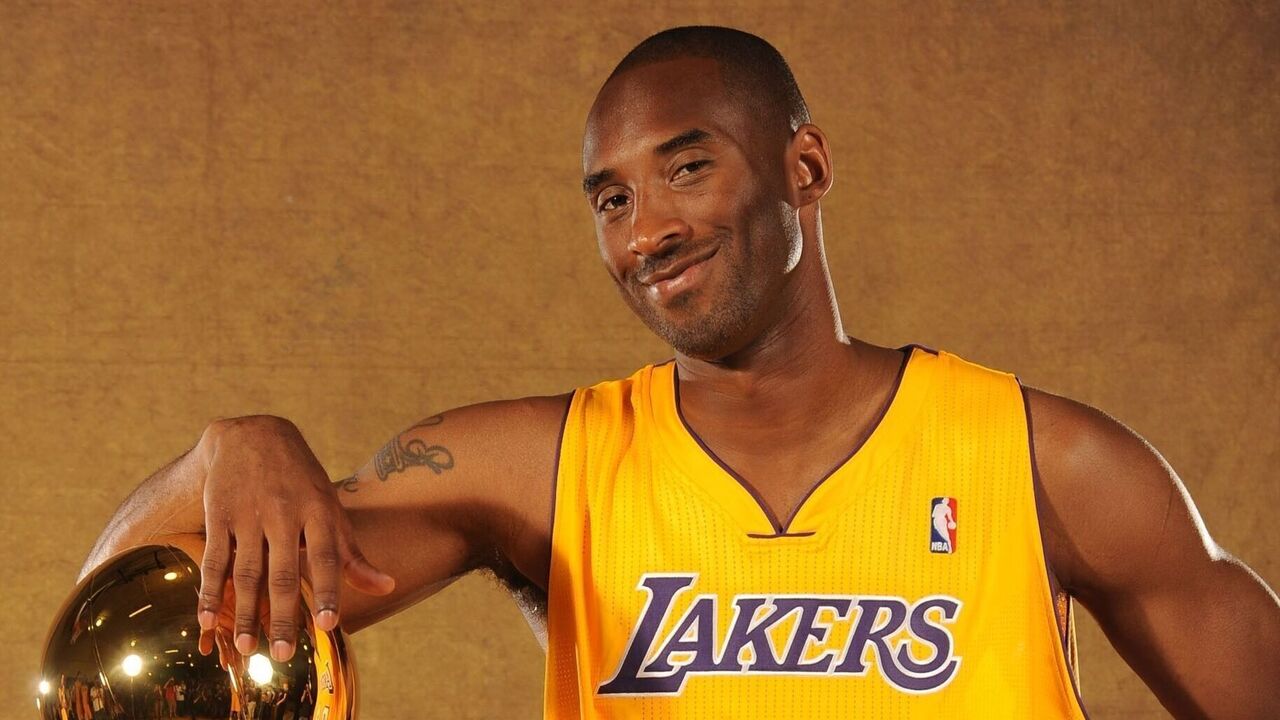
Signature performance: 81 points
Bryant had a 60-point career finale and a plethora of other unforgettable moments, but his 81-point epic against Toronto is the easy choice here. Just ask Jalen Rose.
With an underwhelming Lakers team (featuring Lamar Odom and Smush Parker as second- and third-leading scorers) struggling to keep up to a cellar-dwelling Raptors squad, The Black Mamba took matters into his own hands. Bryant caught fire in the second half, scoring 27 points in the third quarter alone. With Raptors head coach Sam Mitchell stubbornly refusing to send extra bodies his way, Kobe smelled blood in the water.
Bryant went for the jugular in the fourth, adding 28 more points. He finished with 81 on 28-of-46 shooting, the second-highest-scoring game in NBA history behind Wilt Chamberlain’s 100-point outburst in 1962. Bryant finished the night with nearly two-thirds of LA’s total scoring output and singlehandedly outscored Toronto 55-41 in the second half.
In a season that saw Bryant average a career-high 35.4 points and eclipse 50 points six times in less than four months, that Sunday night against the Raptors stood out as the greatest and most prolific example of his by-any-means-necessary bravado.
Why he’s here: O’Neal probably tops Bryant when their entire careers are measured, and the big man served as the Lakers’ best player during their shared championship runs. However, the timeframe in question tips the scale in Kobe’s favor. Take any chapter of Bryant’s career, and each one probably merits inclusion here on its own.
Kobe was an All-NBA third-team selection as a 20-year-old in the lockout-shortened 1999 season. The following year, he was an All-Defensive first-team selection as a 21-year-old, as well as the second-leading scorer on a championship team. Bryant served as one of the greatest supporting stars in history at the turn of the century, then he carried lesser teams to respectability as an undeniable alpha in the years after O’Neal’s departure. He became a championship leader as a more mature and refined player to close out the aughts, then he pushed his body to the absolute limit to keep his beloved Lakers afloat in the first half of the 2010s; his Achilles gave out before his spirit ever did.
Kobe’s efficiency tailed off, and some of his later All-Defensive Team selections had more to do with reputation than merit. However, you’d be hard-pressed to find many more in the game’s history who were as complete a player as Bryant was for a decade and a half. More than just the all-time skill, though, it was Bryant’s indomitable will, maniacal work ethic, and insatiable appetite for victory that propelled him.
He didn’t crack the top three of our ranking, but none of his peers on this list carry the same cultural weight or icon status. – Joseph Casciaro
3. Tim Duncan
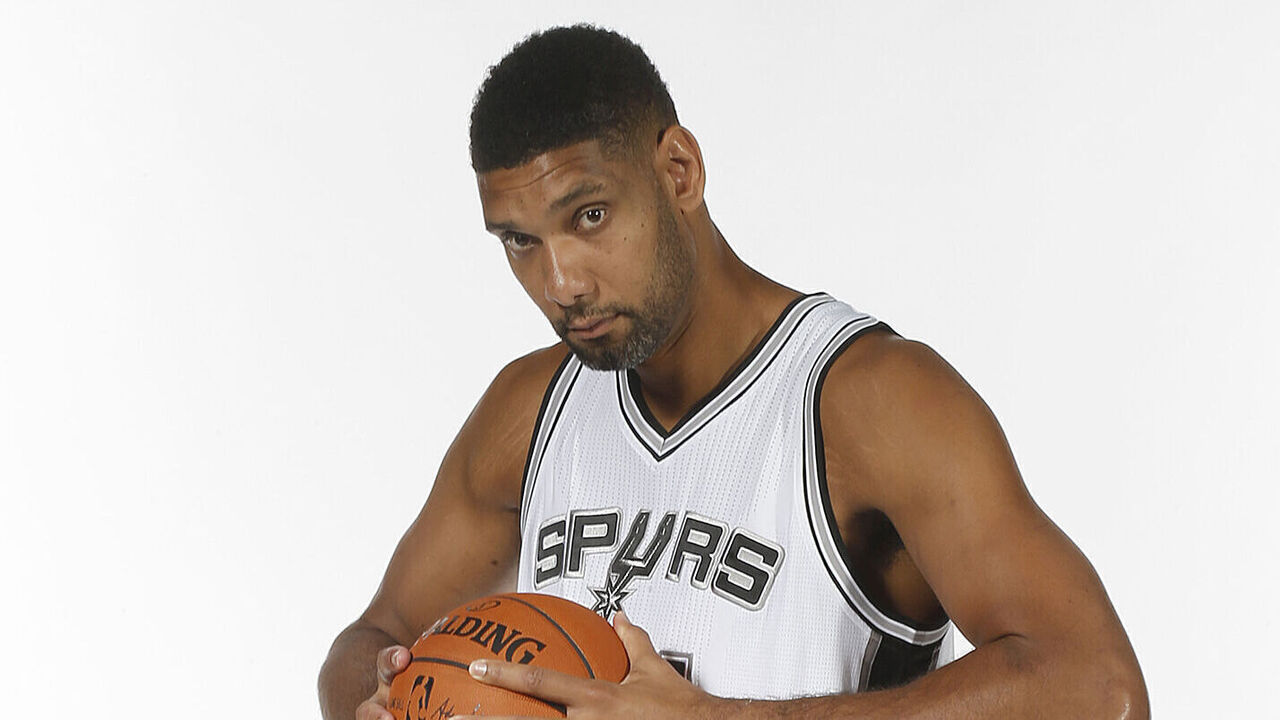
Signature performance: 2003 Finals
With David Robinson on his last legs and Tony Parker and Manu Ginobili just getting started, Duncan carried the Spurs to their second championship. He averaged 24.2 points, 17 rebounds, 5.3 assists, 5.3 blocks, and one steal in 44 minutes per contest during a six-game NBA Finals victory over Jason Kidd’s New Jersey Nets.
Why he’s here: Duncan’s greatness was more understated than the rest of the top five – bank shots from the elbow aren’t exactly the stuff of playground dreams. But he was no less dominant. The Big Fundamental’s soft touch, discipline, and footwork helped him carve up opposing big men on the offensive end, while his otherworldly positioning, instincts, and timing allowed him to dominate defensively while barely breaking a sweat.
Some may gasp at the sight of Duncan’s name above Bryant’s, but for as iconic as Kobe was, Duncan impacted winning for a longer period of time and was the best player on championship teams more often. The worst team of Duncan’s career still won 50 games, and the worst his Spurs ever performed in Duncan’s minutes was still plus-5.2 points per 100 possessions (in 2008-09), according to NBA.com. In other words, the worst the Spurs ever performed in Duncan’s minutes would’ve made them a top-three overall team last season. Chalk that up to San Antonio’s organizational competence if you please, but Duncan is The Spurs Way. Just ask Gregg Popovich.
Duncan defined consistent excellence like few athletes in history. Between the 1998-99 season and his retirement in 2016, he missed an average of only six contests per season. In 82-game seasons, he never played fewer than 61 games.
Duncan’s methodical dominance and disdain for attention earned him the nickname “Old Man Riverwalk,” a nod to one of San Antonio’s top attractions. It may not have been sexy, but for the better part of two decades, “Old Man Riverwalk” was inevitable. – Casciaro
2. Steph Curry
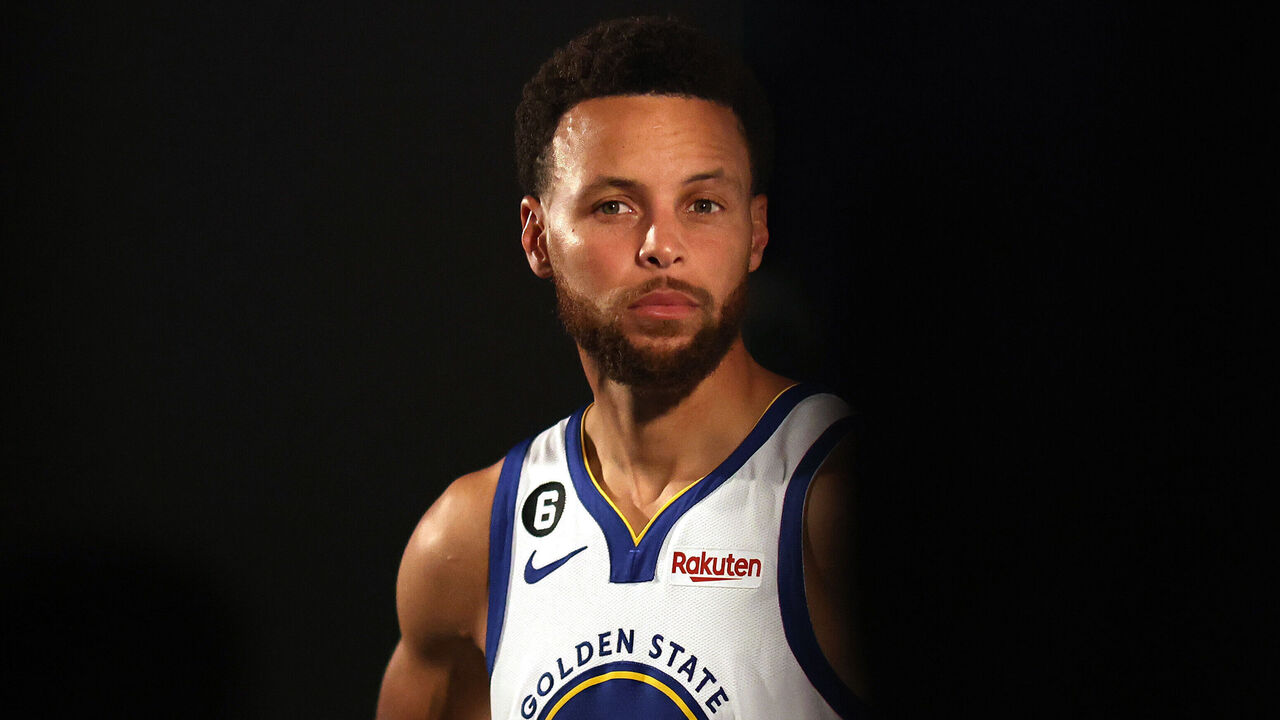
Signature performance: 46 points Feb. 27, 2016 vs. Thunder
This wasn’t the best Curry performance, and it obviously wasn’t the most consequential. However, it was one of the most indelible moments of his career, and the one that best captured the sheer delirium of watching him at his peak. On top of eliciting one of Mike Breen’s most iconic calls, Curry’s 40-foot game-winning overtime dagger (his then-record-tying 12th 3-pointer of the game) improved the Warriors to an absurd 53-5 en route to their record-setting 73-win finish and Curry’s unanimous repeat MVP award.
At the time, months before Curry injured his knee in the first round of the playoffs and everything went sideways in the Finals, he and the Warriors felt untouchable and inevitable. More than any other moment, this late-February win – and the audacious shot that punctuated it – strengthened the belief that he could simply do whatever he wanted.
Why he’s here: Everyone knows Curry is the greatest shooter in the history of the sport. His combination of limitless range and blink-and-it’s-gone release – achieved via preternatural balance and body control – have given him unprecedented court-warping power. He’s a 42.8% career long-range shooter on preposterous volume, and he has four of the top five all-time seasons – and eight of the top 16 – in terms of 3-point makes. Curry represents a five-alarm fire for the defense the moment he crosses midcourt, and five sets of eyes follow him wherever he goes. His threat level is such that he can go scoreless and still be, by far, the most impactful offensive player on the floor.
But don’t let the magnitude of his shooting ability overshadow everything else that’s made him the best offensive player of the last 25 years. He has a masterful handle that allows him to burrow into tight spaces and dust switches on the perimeter, the deft touch and contorting finishing ability that allows him to score over bigger players at the rim, the underrated passing that allows him to leverage all the defensive attention he draws, and the inexhaustible motor that’s long made him the league’s most relentless off-ball mover. Curry will always be synonymous with the 3-ball, but this is a 6-foot-2 guard who’s shot 56% from 2-point range over the last eight years.
Curry has weaponized all of these skills in service of Golden State’s free-flowing, egalitarian offensive system. He cedes on-ball touches and uses his gravity to benefit others, setting myriad off-ball screens that act as magnets for multiple defenders and open up backdoor cuts for teammates. He willingly shared the spotlight with Kevin Durant for three years, which added two championships to his and the Warriors’ tally. But Golden State never stopped being Steph’s team. And for all his team-oriented proclivities, when he needs to take over and play hero ball – as he did against Boston in the 2022 Finals – he can do so as well as anyone.
We’d never seen anything like him before, and we’ll probably never see anything like him again. – Wolfond
1. LeBron James
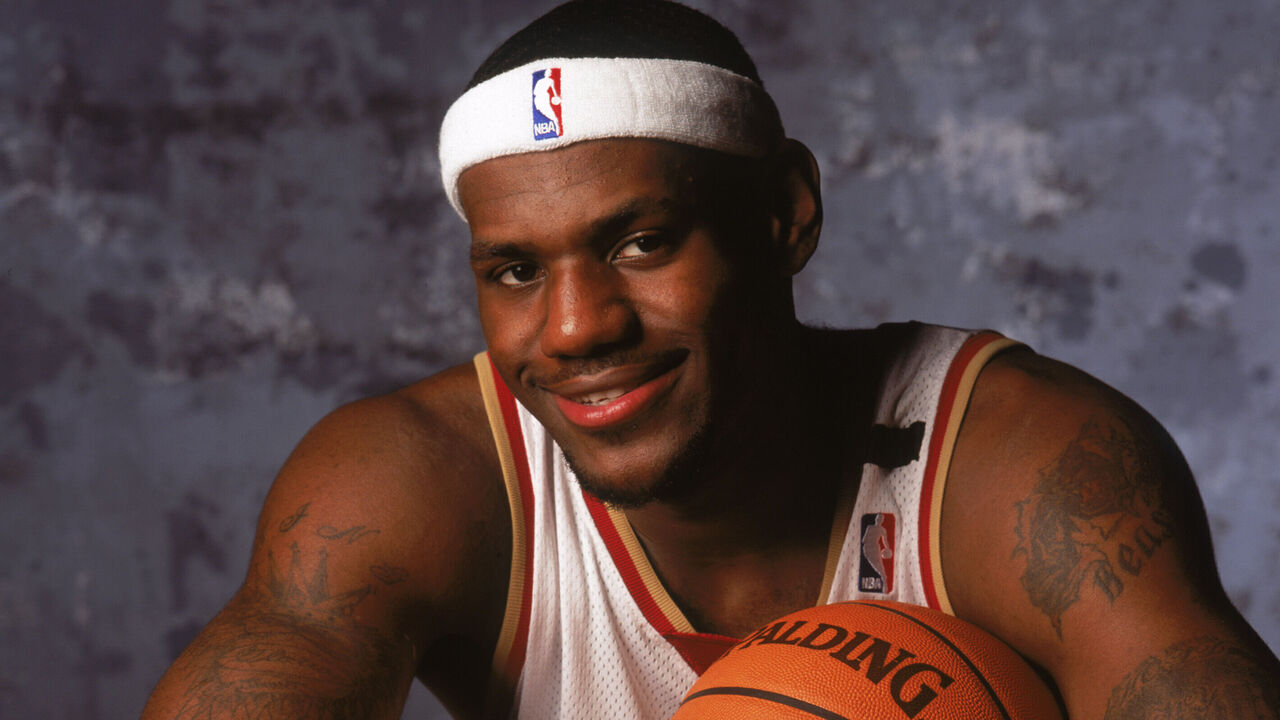
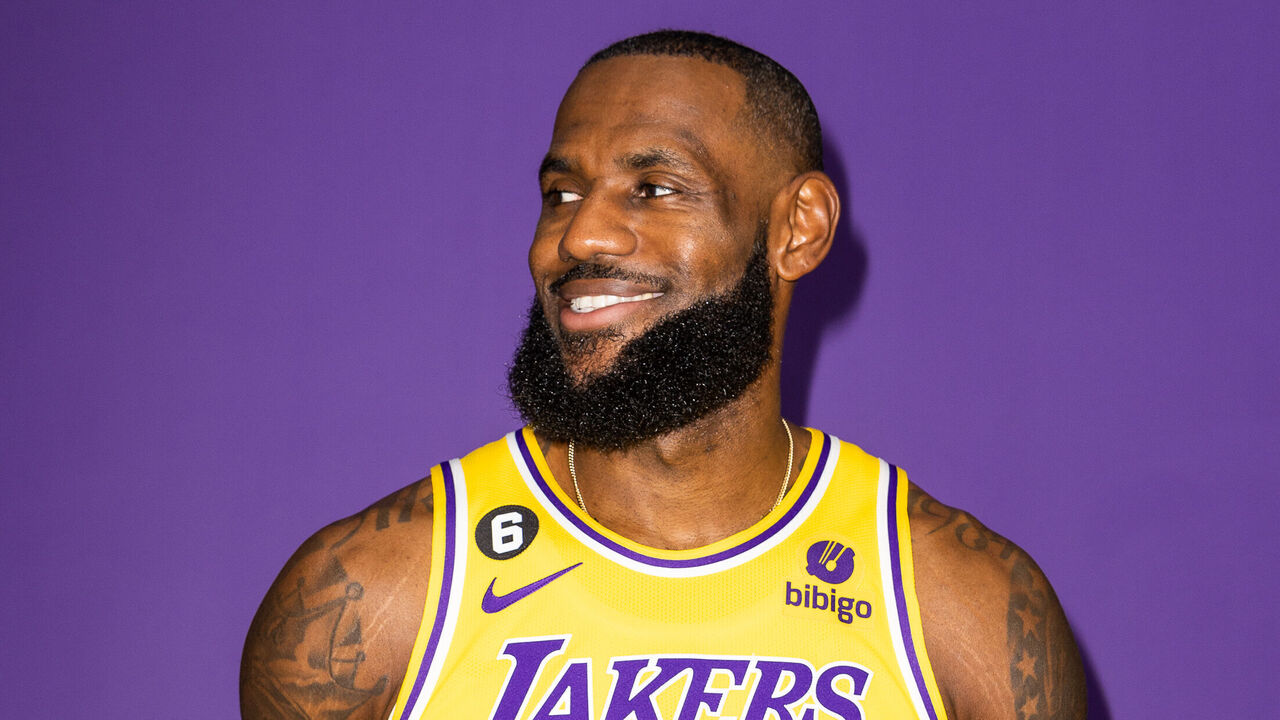
Signature performance: 2012 East finals, Game 6
Take your pick, here. The night James began a decade-long run as the best player alive when he single-handedly lifted Cleveland over a stacked Detroit team in the 2007 East finals? When he averaged roughly 36 points, 13 rebounds, and nine assists to give the wounded Cavs hope during the 2015 Finals? The block in Game 7 of the 2016 Finals? Game 1 of the 2018 Finals? There are no wrong answers, but Game 6 of the 2012 East finals was different.
A year removed from an embarrassing showing (and his only true NBA Finals letdown) in the 2011 series against Dallas, James and the Heat were on the precipice of disaster as they arrived in Boston facing elimination. Falling short of a championship, let alone the Finals, would’ve ended Miami’s Big Three experiment before it even got off the ground. On an individual level, James’ legacy may have never recovered without a ring. His eventual claim to GOAT would’ve surely been sullied.
On the road against a Celtics team still featuring Kevin Garnett, Paul Pierce, and Ray Allen, the Heat needed something special. They got it from James, who poured in 45 points on 19-of-26 shooting to go along with 15 rebounds, five assists, and the face that launched a thousand memes (and an individual dynasty).
Why he’s here: Was there really any doubt James would take his rightful place on the post-Jordan throne?
What’s left to be said? He was the most hyped prospect in modern sports history and somehow shattered expectations. James conquered Kareem Abdul-Jabbar’s unconquerable all-time scoring record while averaging nearly 29 points per game in his 20th season. He’s averaged 20-plus points for 20 straight years. His twenties alone would’ve placed him among the game’s all-time greats. Then, he averaged more than 30 points in his age-37 season, led the league in assists in his age-35 campaign, and recorded his career-high in rebounds in his age-33 season.
The only player to have ever won Finals MVP awards for three different teams, no one has ever played the game as well for as long. No one has ever enjoyed a longer, more consistent run as the planet’s top baller. No one has ever been as complete a basketball player as James was at his absolute best. Built like a linebacker, James runs like a sprinter, possesses the handle and vision of the game’s greatest point guards, and bullies opponents like the smashmouth forwards of the ’80s and ’90s. Oh, and he once shot better than 40% from deep around the same time he should’ve been winning Defensive Player of the Year awards.
He may not be your GOAT, but if he’s not your pick for the greatest player of the post-Jordan era, you haven’t been watching the same game as us over the last 25 years. – Casciaro

